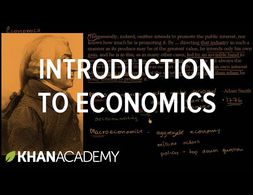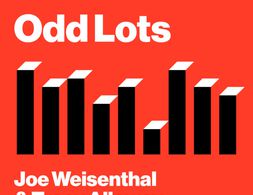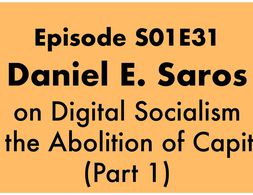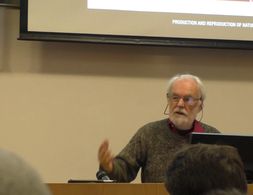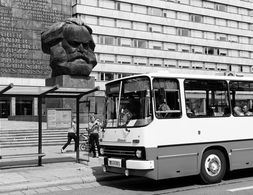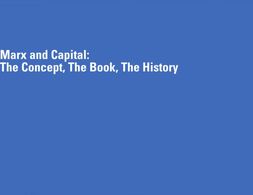✕
594 results
Quinn Slobodian a historian of modern Germany and international history analysis of current development in the Mont Pèlerin Society and therefore neo-liberalism. He sees neo-liberalist thinkers less as believers in the self-healing power of markets, but more as ordo-liberal Globalists who wanted to protect the markets from post-war politics and especially mass democracy. Their goal of global capitalism is still strong, however sceptics in the Mont Pèlerin Society are rising, which see international migration as a threat to Globalisation. Therefore, turning neo-liberal policies away from international institutions like the EU back towards the national states as new defenders of the markets as well as international trade and investments.
(A development which can be seen in the Friedrich A. von Hayek-Gesellschaft and especially in the "liberal" wing of the German rightwing populist party AfD)
Reflecting his own concerns about the contribution economics could make to the betterment of society, Eli Ginzberg published this study of Smith's humanitarian views on commerce, industrialism, and labor. Written for his doctoral degree at Columbia University, and originally published as The House of Adam Smith, the book is divided into two parts.
Marxian Political Economy focuses on the exploitation of labour by capital. The economy is not conceived as consisting of neutral transactions for exchange and cooperation, but instead as having developed historically out of asymmetric distributions of power, ideology and social conflicts.
This short video by the Khan Academy presents a classic introduction to economic teaching. Starting with the quote by Adam Smith in "The Wealth of Nations" on the invisible hand, it shows how economics deals with the question of the allocation of scarce resources and shortly presents different questions addressed by microeconomics and macroeconomics. It further makes reference to questions of simplification in mathematical models.
The plumbing of the financial system is coming under strain like never before. On this week’s podcast, we speak with two legendary experts on how the money system works: Zoltan Pozsar of Credit Suisse and Perry Mehrling of the Frederick S. Pardee School of Global Studies. They explain the extreme level of stress we’re seeing, what the Fed has done to alleviate, what more needs to be done, and what the post-crisis future may look like.
This brilliantly concise book is a classic introduction to Marx’s key work, Capital. In print now for over a quarter of a century, and previously translated into many languages, the new edition has been fully revised and updated, making it an ideal modern introduction to one of the most important texts in political economy.
While many are unsatisfied with capitalism and critique it in highly sophisticated ways, there are few concrete proposals for a socialist mode of production that could replace the capitalist one. Daniel E. Saros has developed such a proposal in his book "Information Technology and Socialist Construction – The End of Capital and the Transition to Socialism" which we discuss at length over the course of two episodes.
Professor David Harvey presents a complete visual representation of the flow of capital in all its forms. Similar to the Water Cycle diagrams, Harvey models the economics of production, consumption, human reproduction, labor, private business, and government redistribution.
The objective of the course is to explore the main strengths and weaknesses of orthodox and heterodox paradigms within development economics.
Happy International Women s Day This International Women s Day 2018 is an opportune moment to highlight prominent scholars of Feminist Economics As a subdiscipline of economics Feminist Economics analyzes the interrelationship between gender and the economy often critiquing inequities and injustices perpetuated by mainstream paradigms Work of this nature …
In this overview paper, Laura Porak reviews the history of industrial policy in the European Union before the background of a Cultural Political Economy approach.
In this webinar for the Princeton Bendheim Center for Finance, Nobel Prize winner William Nordhaus explains the main problems regarding the economics of a low-carbon energy transition.
The world has seen the emergence of a rather different system of international lender of last resort organized as a network of central bank liquidity swap lines largely limited to the core countries of the Global North In this system central banks swap their own currency for dollars which they …
Explore the pressing topic of globalisation and how it affects economics, politics and society with this online course.
Professor Jennifer Clapp explains the dynamics of financialization of land and agricultural commodities in Subsaharan Africa. She points to the historical roots of accelerated land speculation and their connection to financial institutions, both generating and reinforcing the process of financialization of African land. Besides talking about roots and dynamics of speculation with land on financial markets, she puts the perspective of scholarly investigation onto the investor's side in discussing guidelines of responsible investment and regulation in the front instead of focussing on the receiving countries.
The authors analyse the role and effects of the US dollar as factual global reserve currency. They demonstrate that a flight into the dollar creates adverse effects for the global economy as it represents a tightening of financial conditions.
Austrian economics focuses on the economic coordination of individuals in a market economy. Austrian economics emphasises individualism, subjectivism, laissez-faire politics, uncertainty and the role of the entrepreneur, amongst others.
In this book, Carlota Perez develops her Neo-Schumpeterian concept of "techno-economic paradigms" which captures the patterns underlying the role of technological revolutions in economic development since the Industrial revolution.
This website belongs to PolyluxMarx and provides open access material for use while reading Karl Marx Capital For several years now people have been starting to dust off Marx and return to his analysis of society This is mainly due to the social turmoil in global capitalism weaknesses in prevailing …
This graduate-level course examines issues related to women’s paid and unpaid work during a time of rapid integration of world markets. Students will analyze the role of government policy, unions, corporate responsibility, and social movements in raising women's wages, promoting equal opportunity, fighting discrimination in the workplace, and improving working conditions.
In this paper the main developments in post-Keynesian macroeconomics since the mid- 1990s will be reviewed. For this purpose the main differences between heterodox economics in general, including post-Keynesian economics, and orthodox economics will be reiterated and an overview over the strands of post-Keynesian economics, their commonalities and developments since the 1930s will be outlined. This will provide the grounds for touching upon three important areas of development and progress of post-Keynesian macroeconomics since the mid-1990s: first, the integration of distribution issues and distributional conflict into short- and long-run macroeconomics, both in theoretical and in empirical/applied works; second, the integrated analysis of money, finance and macroeconomics and its application to changing institutional and historical circumstances, like the process of financialisation; and third, the development of full-blown macroeconomic models, providing alternatives to the mainstream 'New Consensus Model' (NCM), and allowing to derive a full macroeconomic policy mix as a more convincing alternative to the one implied and proposed by the mainstream NCM, which has desperately failed in the face of the recent crises.
Dependency in Central and Eastern Europe - Self-reliance and the need to move beyond economic growth
In this essay, the author takes a critical perspective on the pursuit of growth as the solution for providing for environmental sustainability and economic stability in the countries of Central and Eastern Europe.
Drawing from the framework of dependency theory and presenting brief insights into European core-periphery relations the author then argues for the implementation of an alternative strategy to development that is built around the concept of self-reliance.
These notes aim to clarify some basic features and implications of gross capital flows In the context of the 2007 08 Global Financial Crisis and the 2010 12 Eurozone Crisis trade imbalances and capital flows received a lot of attention from academics policymakers and the media However there is still …
The principle of effective demand, and the claim of its validity for a monetary production economy in the short and in the long run, is the core of heterodox macroeconomics, as currently found in all the different strands of post-Keynesian economics (Fundamentalists, Kaleckians, Sraffians, Kaldorians, Institutionalists) and also in some strands of neo-Marxian economics, particularly in the monopoly capitalism and underconsumptionist school In this contribution, we will therefore outline the foundations of the principle of effective demand and its relationship with the respective notion of a capitalist or a monetary production economy in the works of Marx, Kalecki and Keynes. Then we will deal with heterodox short-run macroeconomics and it will provide a simple short-run model which is built on the principle of effective demand, as well as on distribution conflict between different social groups (or classes): rentiers, managers and workers. Finally, we will move to the long run and we will review the integration of the principle of effective demand into heterodox/post-Keynesian approaches towards distribution and growth.
MERCOSUR (Mercado Común del Sur or Common Southern Market) was the first formalized attempt to integrate South American countries economically and politically.
David Harvey is a Distinguished Professor of Anthropology Geography at the Graduate Center of the City University of New York CUNY the Director of Research at the Center for Place Culture and Politics and the author of numerous books He has been teaching Karl Marx s Capital for nearly 50 …
Those who control the world’s commanding economic heights, buttressed by the theories of mainstream economists, presume that capitalism is a self-contained and self-generating system.
From Marketisation to Armed Conflict Since 1991 nominally independent Ukraine has been in turmoil with the Orange Revolution and the Maidan protests marking its most critical moments Now its borders are threatened and the civil unrest and armed conflict continue to destabilise the country In order to understand these dramatic …
In this video, Clara Mattei investigates the function of austerity in relation the stabilization of capitalism as a form of social order build around private property, wage labor and class relations. In order to develop this argument, she situates austerity in the history of World War 1 and its revolutionary aftermath. Zooming in on the politicization of the economy and the associated threat to class society that emerged in the period, she highlights how austerity was a „tool of reaction“ that was successful in curtailing demands for economic democracy and a society free from class oppression.
Caring activities are one central element of feminist economists' analysis – also since in particular unremunerated work is a blind spot in mainstream economics and most other economic paradigms. Those focus on the market sphere: activities are considered as productive and as real labour if they are remunerated and market-intermediated. Goods and services are considered as labour if they create a value which can be traded on the market. Feminist Economics remarks that this perspective creates certain dichotomies and consequent devaluations: unproductive – productive; private – public; unpaid – remunerated OR paid less – well paid; female – male; soft work – hard work; caring – rationality.
Source image GC Videography Fellows Youtube channel David Harvey davidharvey org City University of New York
A review of:
[1] Intermediate Microeconomics, H.R. Varian
[2] Mikrooekonomie, R.S. Pindyck, D.L. Rubinfeld
[3] Grundzuege der mikrooekonomischen Theorie, J. Schumann, U. Meyer, W. Stroebele
We use cookies on our website. Click on Accept to help us to make Exploring Economics constantly better!




